
SDG 1: No Poverty 2025 Report
SDG 1 - No Poverty
End poverty in all its forms everywhere
The University actively addresses poverty through inclusive education, offering financial support and scholarships for low-income students from the UK and overseas. It empowers communities and individuals by supporting student start-ups, local businesses, and providing free healthcare and wellbeing services. Through impactful research and policy work, the University tackles poverty-related issues globally, including refugee integration and sustainable trade in low-income regions.
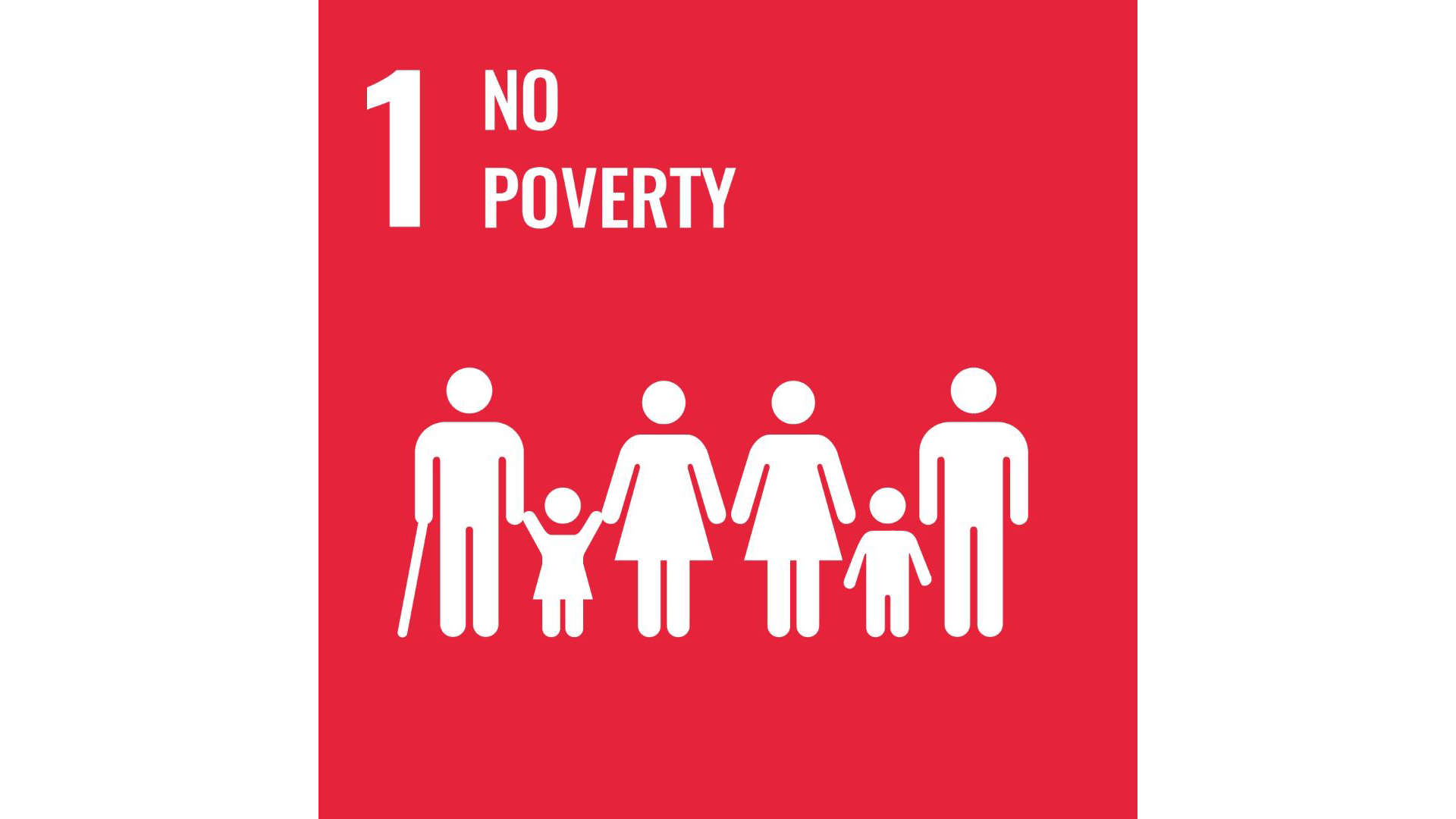
Learning for students
Support for low-income students
The University provides a £1,000 scholarship to low-income new undergraduate students, culminating in up to £1m of support available to our students each year. We also provide support to low-income home and International students in the form of a free Financial hardship fund. The fund can assist those in financial difficulty with general living costs such as housing, utility bills, childcare, travel and food.
Our Access and Participation Plan sets and monitors admissions targets for underrepresented groups. Given the University is in one of the most socio-economically deprived areas of the UK, our intake of students from quintile 1 (least advantaged) exceeds that of the sector and reflects our extensive and continuing widening participation programme.
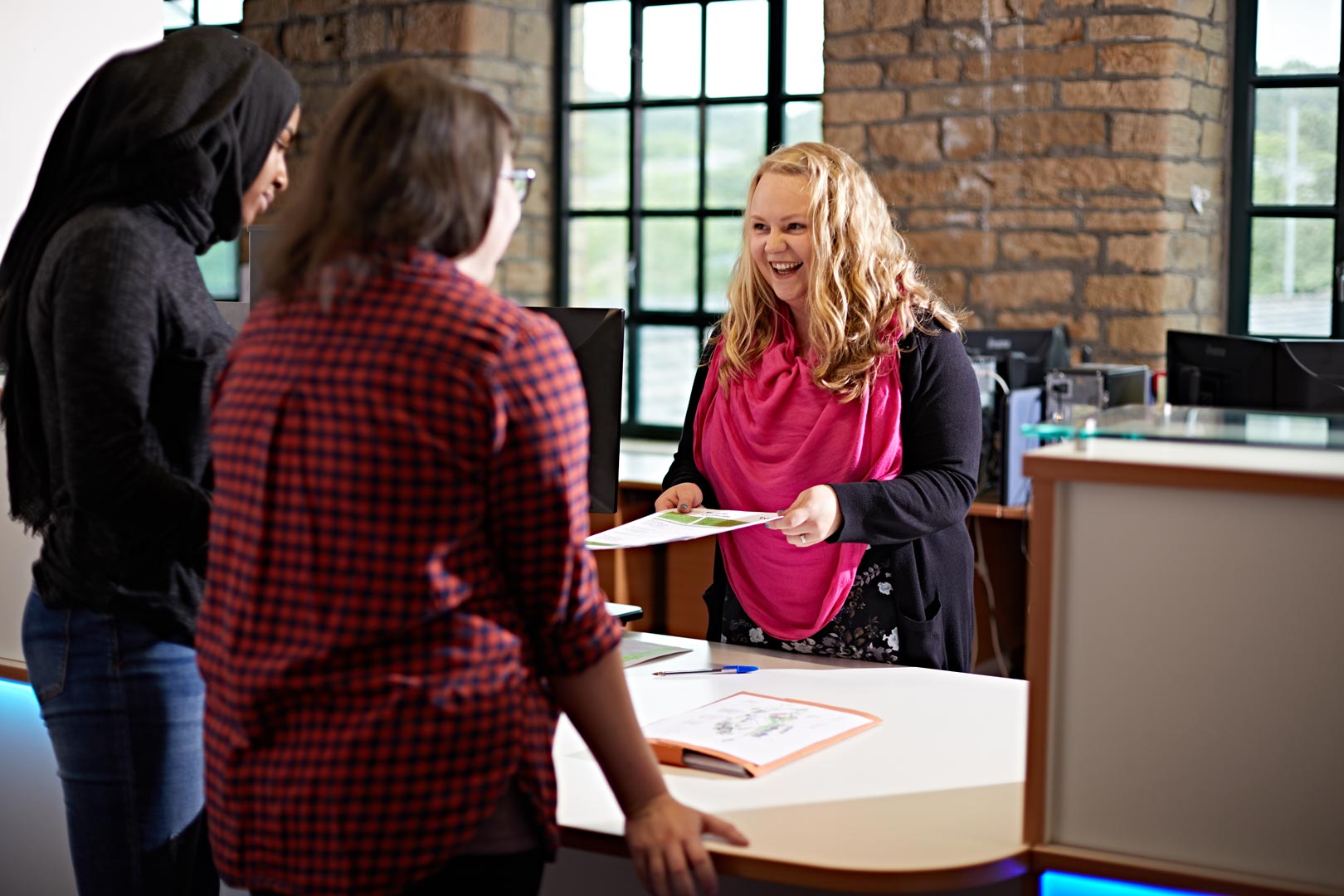
Supporting students from low and low-middle income countries
We also have continuation and attainment targets in place for students in the bottom financial quintile as outlined in our Access and Participation Plan. We aim to reduce the gap in degree attainment (1st and 2:1) between the least advantaged students (IMD groups 1 and 2) and most advantaged students (IMD groups 3, 4 and 5) from 10.2% in 2017/18 to 0% in 2024/25.
The University is proud of its long-standing record in supporting students from low and low-middle income countries. We currently offer scholarships to all Undergraduate International students - including those from low and low-middle income countries – and each receives a minimum £2000 scholarship if they achieve the general entry requirements.
This has led to a relatively high level of participation from low-income international students compared to the UK higher education sector overall, as reflected in our market share* of 2% or more in several countries — including Liberia (4%), Egypt (3%), Pakistan (3%), Sudan (3%), Vietnam (2%), Bangladesh (2%), and Rwanda (2%).
*Source: HESA Student Record 23/24, HESA Finance record 23/24. © Higher Education Statistics Agency Limited, extracted 01/10/2025. Neither the Higher Education Statistics Agency Limited nor HESA Services Limited can accept responsibility for any inferences or conclusions derived by third parties from HESA data or other information supplied by the Higher Education Statistics Agency Limited or HESA Services Limited through Heidi Plus.
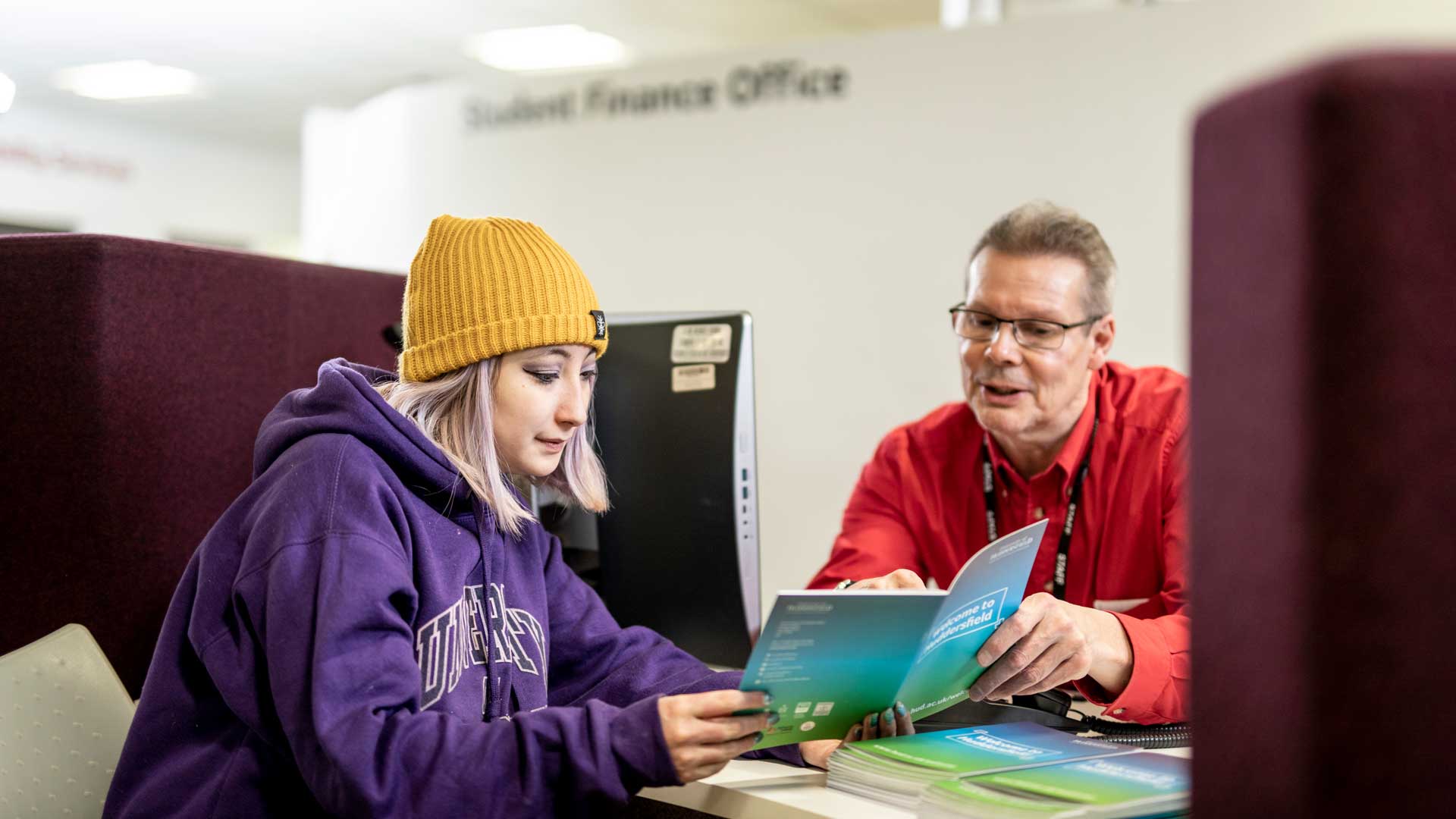
Local Start-Up Support and Financial Assistance
The University’s Enterprise Team empowers student start-ups that contribute to a low-carbon economy, and many, perhaps most, participants in the free programmes are embedding environmental sustainability into their ideas and approaches.
In addition, in 2023, the University established a Maker Space, a free collaborative workspace that brings together inventors, creatives and digital enterprises to share and grow ideas across the fashion, textiles, and digital electronics sectors.
The Enterprise Team contributes to our curriculum development, with examples including the introduction of social enterprise within Human and Health Sciences modules. They also promote enterprise and sustainability through the University's Global Professional Award, an innovative programme designed to equip undergraduate students with the tools needed for success at university and to thrive in their chosen field after graduation. The award has three focus areas: Employability and Enterprise, Wellbeing, and Global and Social Awareness, which includes SDG workshops. The team has recently secured funding from Enterprise Educators UK to run a project that fosters broader dialogue around the climate and ecological context, engaging with sustainability and business stakeholders within and beyond the university.

Enterprising students received share of £20,000 to kickstart businesses
Recently 4 enterprising students received a share of £20,000 to kickstart their businesses through the University’s Alan Lewis Seed Fund, a fund open to all University of Huddersfield students and Alumni. Businesses receiving money from the Alan Lewis Seed Fund to invest in manufacturing, website design, marketing etc, have included:
- An alternative clothing brand with a focus on sustainability and meaningful design
- A business empowering proactive health management through AI technology for better health outcomes and cost savings
- A circular economy business involving the collection of festival waste tents and turning them into clothing items to sell at festivals and online
- A circular economy fashion business taking unused, military surplus clothing and giving it new life by refashioning and upcycling them into durable, high-quality, yet high-end, couture fashion
Public and business engagement
Local Business Community Support
The University’s 3M Buckley Innovation Centre is a centre for enterprise and innovation for businesses across the region, with a strong focus on SMEs, including financially and socially sustainable businesses. We help businesses to innovate, connect and grow through access to knowledge, support and technology, all contributing to regional economic growth and productivity.
The Centre works with pioneering businesses to help develop ideas and solve issues; design and prototype new or improved products; facilitate high quality, high impact R&D; and support growth and success. The Centre promotes collaboration between the University and industry to create value, business growth and R&D.
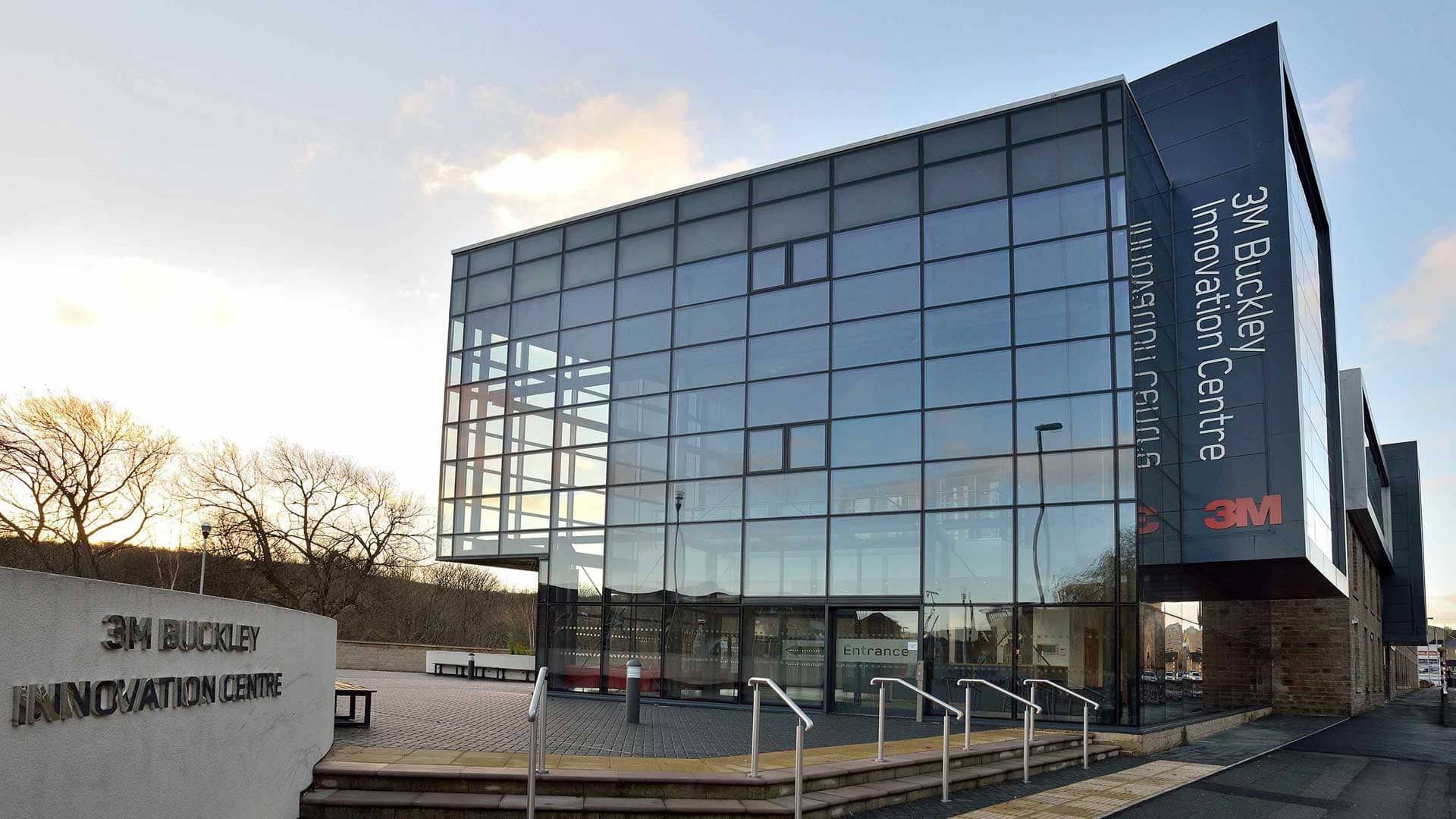
Help To Grow
In addition, the Huddersfield Business School runs the Help to Grow management programme, which is now in its 10th round and has supported close to 150 people from local businesses. Help to Grow provides high-quality practical learning and mentoring, with the Business School hosting regular alumni networking events for local SMEs that allow companies to exchange valuable insights and keep up-to-date with the latest developments.
The University has recorded significant increases in the numbers of businesses with which it engages – from 4173 in 2021/22, to 4423 in 2022/23, to 4468 in 2023/24.

Programmes to improve access to basic services for all
We organise training and programmes to improve access to basic services for all. Our Clinical and Wellbeing Services help people in the local community to make informed and positive lifestyle choices to improve their health and wellbeing. Through these initiatives, students deliver essential healthcare services and education to all members of the community.
Examples include ‘Get Set Goal’ providing sessions to help local community members achieve their wellbeing goals; 'Restart a heart' in collaboration with Yorkshire Ambulance Service, delivering CPR training to all ages; the Mobile Clinic vehicle which brings clinical and wellbeing services to our communities and the University's Podiatry Clinic and Gait Performance Clinic, accessible to all members of the local community.

Our research
Policy-making addressing poverty
The University’s research and knowledge transfer activity contributes to the Goal of No Poverty.
Refugee Integration Yorkshire and Humber Project
Professor Philip Brown has undertaken research as part of the Refugee Integration Yorkshire and Humber project. The study calls for urgent action to review how policy and practice at all levels can be shaped to deliver better socioeconomic outcomes for refugees. It is aimed at those in local, regional and national government, the public sector, the voluntary and community sector and activists.
Poverty-focused research project: Trade Forest Products
Dr Matt Snell from the Huddersfield Business School is leading on the Trade Forest Products Ethiopia project, aiming to tackle issues that are inhibiting the development of community enterprises accessing international markets for wild coffee and forest honey in southwest Ethiopia.
The project will focus on creating sustainable international supply chains for these forest-conserving products, working with NGOs and government agencies to introduce new traceability systems and policies for better quality assurance, as well as creating trade links between local co-operatives and international buyers.
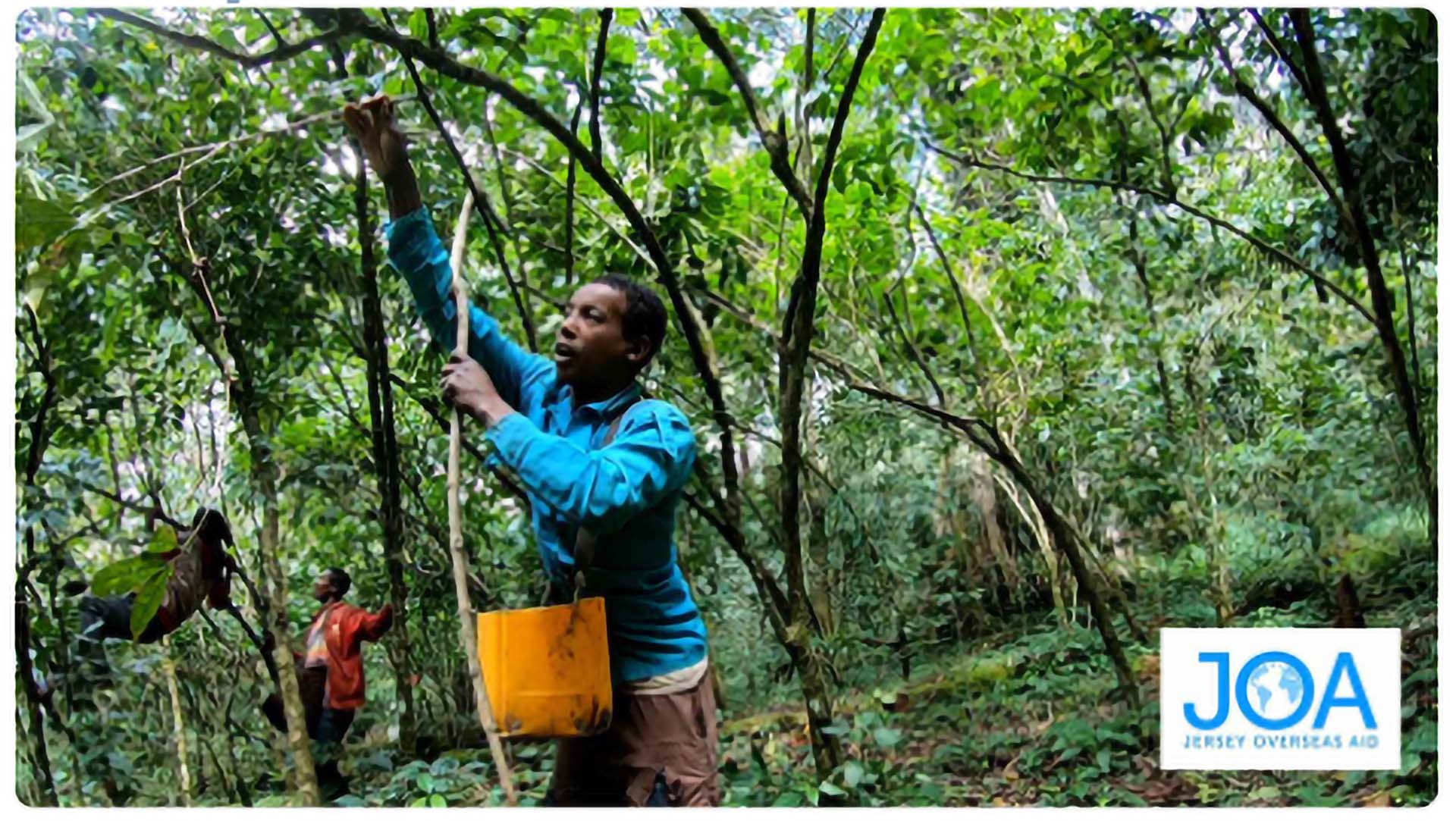
Find further information
Financial hardship funds
Learn more about our financial hardship funds for students, including Disabled Students' Allowance and specific advice for International students.
Student support
We offer various support services for our students. With dedicated staff and resources, we offer a friendly and supportive environment for all.
Equality, Diversity and Inclusion
We are deeply committed to equality for all students and staff. Explore how we strive maintain a culture of diversity and inclusivity.
Sustainable Development Goals
Click to explore our other sustainable development goal pages and get to know how we're working towards these at the University of Huddersfield.